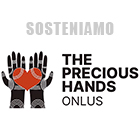
Vision
The history of the 20th Century in Europe is one of rupture and trauma as well as of huge technological development and learning. The countries of the European Union have to deal with their specific history, with victims, perpetrators, winners, losers, oppressors and oppressed, with majorities and minorities and a great diversity... Awareness and knowledge of this complex past are tools for a deeper understanding of our present and ultimately, for shaping our future.
Half a century of globalization and mass immigration have multiplied cultural diversity in Europe. Major memory institutions like museums and other cultural centers did not do enough to cope with this changing environment , marginalizing groups that are geographically and economically bound to the continent, but are lacking cultural identification with it,- referring their lives to a different memory setting.
The neo liberal wave in European politics and its emphasis on a diminishing role of governments and on the responsibility of the individual lead in several countries to a dismantling of existing educational and cultural infrastructure. Despite upcoming cultural entrepreneurship a large group of lower educated citizens are alienated from society and vulnerable to populism and fanaticism.
Culture is memory in action. Visual and performing arts, literature, design, architecture and urban planning[EA1] i.e. have the capacity of making the invisible dynamics of our culture and memories visible and fruitful and to connect our individual realities and experiences with those of society as a whole. Creative and performing disciplines have the capacity to close the gap between the past and present, between memory and actuality.
Participation is a process that allows multiple voices to be heard and memories to be noticed, resulting in outcomes which reflect the perspectives of a wide range of individuals and enhance their identification with the whole[LE2] . The unpredictable nature of the input of audiences into creative processes forces cultural organizations to use open and sensible working forms and integrate them into their strategy, to bridge the gap between the creator and the consumer, which bares a largely unused potential for organizations. In that sense participation can enable paradigm shifts in cultural organizations concerned with memory.
Mission and aims
TIME CASE Memory in action wants to support the sector of cultural organizations concerned with memory to reflect on participatory practice, with a particular focus on practices that set out to investigate and explore the shaping and re-imagining of our recent histories.
The ambition of TIME CASE Memory in action is to celebrate the unique and hard won endeavors of creative projects and organizations across Europe that are engaging the public as active agents in their work.
TIME CASE Memory in action is a resource for practitioners, researchers, (funding) organizations and participants that provides examples, useful tools and outlines key questions raised through practice.
TIME CASE Memory in action wants to become a financial sustainable organization advocating and championing participation and active memory learning.











